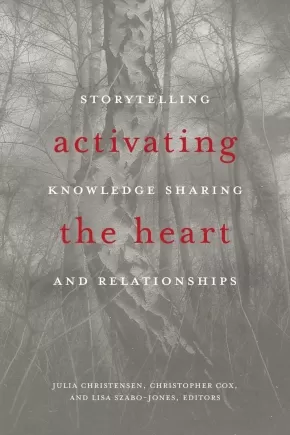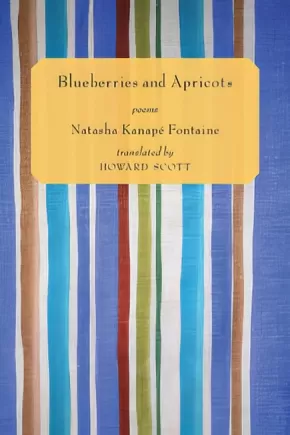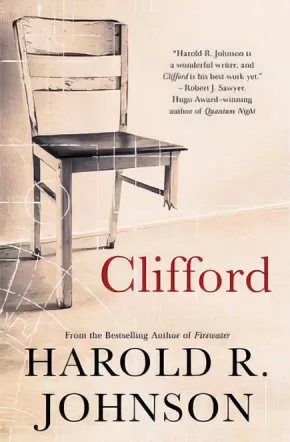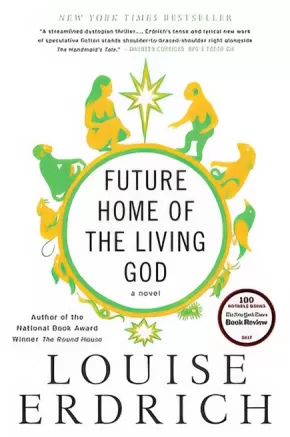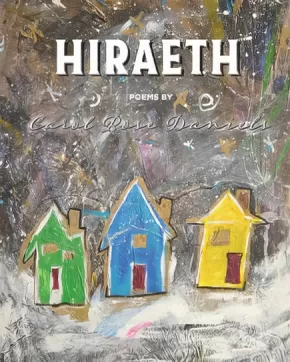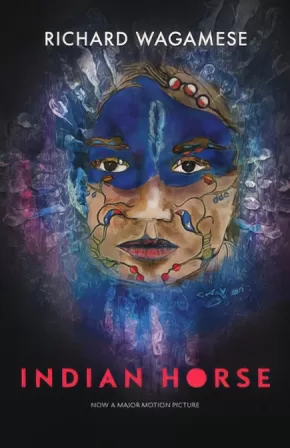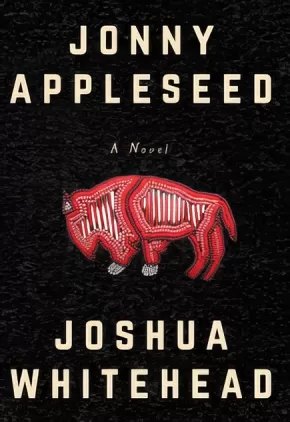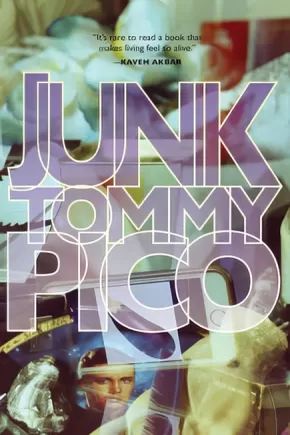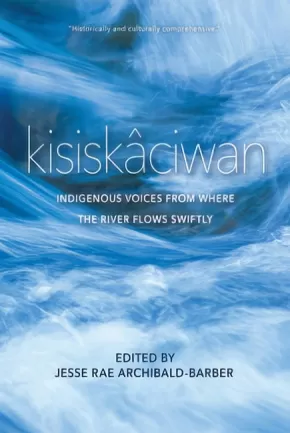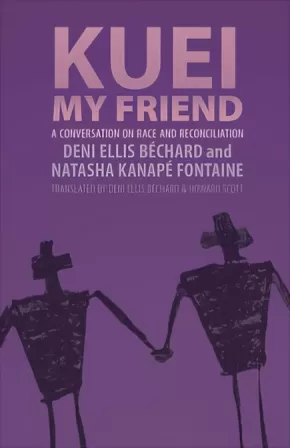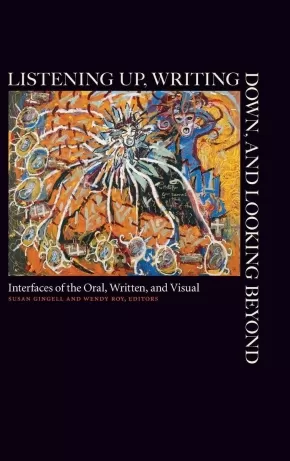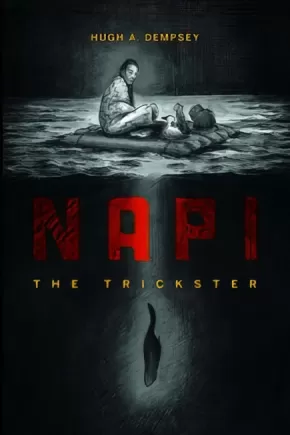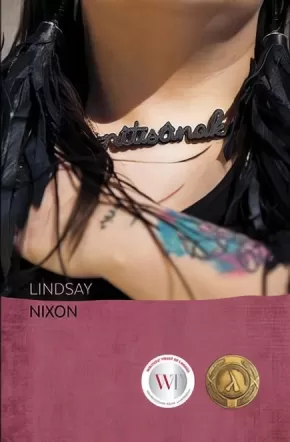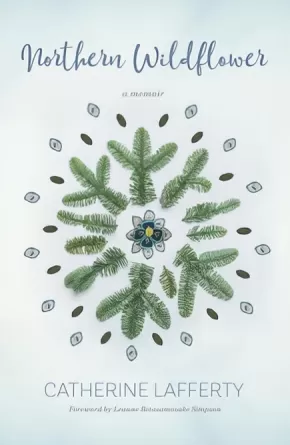
Literary Studies
256
-
270
of
325 Results;
Sort By
Go To
of 22
Activating the Heart: Storytelling, Knowledge Sharing, and Relationships
$26.99
Editors:
Format:
Paperback
Text Content Territories:
Indigenous;
ISBN / Barcode: 9781771122191
Synopsis:
Synopsis:
Activating the Heart is an exploration of storytelling as a tool for knowledge production and sharing to build new connections between people and their histories, environments, and cultural geographies. The collection pays particular attention to the significance of storytelling in Indigenous knowledge frameworks and extends into other ways of knowing in works where scholars have embraced narrative and story as a part of their research approach.
In the first section, Storytelling to Understand, authors draw on both theoretical and empirical work to examine storytelling as a way of knowing. In the second section, Storytelling to Share, authors demonstrate the power of stories to share knowledge and convey significant lessons, as well as to engage different audiences in knowledge exchange. The third section, Storytelling to Create, contains three poems and a short story that engage with storytelling as a means to produce or create knowledge, particularly through explorations of relationship to place.
The result is an interdisciplinary and cross-cultural dialogue that yields important insights in terms of qualitative research methods, language and literacy, policy-making, human–environment relationships, and healing. This book is intended for scholars, artists, activists, policymakers, and practitioners who are interested in storytelling as a method for teaching, cross-cultural understanding, community engagement, and knowledge exchange.
Educator Information
This book would be useful for the following subjects: Indigenous Studies, Literary Criticism, Creative Writing, and Social Science.
Recommended in the Canadian Indigenous Books for Schools 2019-2020 resource list as being useful for grades 11-12 for English Language Arts and Social Studies.
Additional Information
220 pages | 6.00" x 9.00"
Edited by Julia Christensen, Christopher Cox and Lisa Szabo-Jones.
Authenticity Note: Contributors to this work identify with various First Nations and Metis communities. Therefore, the Authentic Indigenous Text label has been applied. It is up to readers to determine if this will work as an authentic resource for their purposes.
Blueberries and Apricots
$20.95
Format:
Paperback
Text Content Territories:
Indigenous Canadian; First Nations; Innu (Montagnais-Naskapi);
ISBN / Barcode: 9781988449326
Synopsis:
Synopsis:
In this, her third volume of poetry, this Aboriginal writer from Quebec again confronts the loss of her landscape and language.
On my left hip
a face
I walk
I walk upright
like a shadow
a people on my hip
a boatload of fruit
and the dream inside
women and children first
"A cry rises in me and transfigures me. The world waits for woman to come back as she was born: woman standing, woman powerful, woman resurgent. A call rises in me and I've decided to say yes to my birth."
Reviews
"Poetess, painter, actress, slammer ... Natasha Kanapé Fontaine speaks with a soft voice, but her words are powerful. In a few years, the young Innue has become a model for young people and for her community." —La Presse
Educator Information
Recommended in the Canadian Indigenous Books for Schools 2019-2020 resource list as being useful for grades 9-12 for English Language Arts and Social Studies.
Additional Information
72 pages | 5.00" x 7.50" | Translated from French by Howard Scott.
Clifford: A Memoir, A Fiction, A Fantasy, A Thought Experiment
$22.95
Format:
Paperback
Text Content Territories:
Indigenous Canadian; First Nations; Cree (Nehiyawak);
Grade Levels: 12; University/College;
ISBN / Barcode: 9781487004101
Synopsis:
Synopsis:
I open my eyes in the darkness, laying on my side, half my vision is of the earth and shadows; the other is of the sky, treetops, and stars. I should write Clifford’s story. The thought emerges fully formed . . . The thought dissipates. I close my eyes and the earth and the sky disappear. The warmth of my sleeping bag wraps around me and sleep pulls me under into that half-world where reality and fantasy mingle in a place where coherent thoughts disintegrate.
When Harold Johnson returns to his childhood home in a northern Saskatchewan Indigenous community for his brother Clifford’s funeral, the first thing his eyes fall on is a chair. It stands on three legs, the fourth broken off and missing. So begins a journey through the past, a retrieval of recollections that have too long sat dormant. Moving from the old family home to the log cabin, the garden, and finally settling deep in the forest surrounding the property, his mind circles back, shifting in time and space, weaving in and out of memories of his silent, powerful Swedish father; his formidable Cree mother, an expert trapper and a source of great strength; and his brother Clifford, a precocious young boy who is drawn to the mysterious workings of the universe.
As the night unfolds, memories of Clifford surface in Harold’s mind’s eye: teaching his younger brother how to tie his shoelaces; jousting on a bicycle without rubber wheels; building a motorcycle. Memory, fiction, and fantasy collide, and Clifford comes to life as the scientist he was meant to be, culminating in his discovery of the Grand Unified Theory.
Exquisitely crafted, funny, visionary, and wholly moving, Clifford is an extraordinary work for the way it defies strict category and embraces myriad forms of storytelling. To read it is to be immersed in a home, a family, a community, the wider world, the entire cosmos.
Reviews
“Clifford is a luminous, genre-bending memoir. Heartache and hardship are no match for the disarming whimsy, the layered storytelling shot through with love. The power of land, the pull of family, the turbulence of poverty are threads woven together with explorations of reality, tackling truth with a trickster slant.” — Eden Robinson, author of Son of a Trickster
“Clifford is a story only Harold Johnson could tell. By turns soft and harsh, intellectual and emotional, Johnson weaves truth, fiction, science, and science fiction into a tapestry that is rich with meaning and maybes. A natural storyteller, Johnson seeks imagined pasts and futurity with equal parts longing and care. This work allows readers and writers the possibility of new and ancient modes of storytelling.” — Tracey Lindberg, author of Birdie
“Harold R. Johnson is a wonderful writer, and Clifford is his best work yet. For fans of Jack Finney and Richard Matheson, this terrific book is a wonderfully human tale of memory both bitter and sweet, as well as a poignant exploration of time’s hold over all of us.” — Robert J. Sawyer, Hugo Award–winning author of Quantum Night
“Clifford is unlike anything I’ve read — it is at once a story of science and magic, love and loss, and a case for the infinite potential of humanity. It is a book of profound wisdom — an unpacking of the deepest truths of science in an effort to transform the pain of grief and regret into healing and forgiveness.” — Patti Laboucane-Benson, author of The Outside Circle
Educator Information
Curriculum Connections: English, Biographies, Family
Additional Information
264 pages | 5.25" x 8.00"
Future Home of the Living God: A Novel (1 in Stock, in Reprint)
$21.99
Format:
Hardcover
Text Content Territories:
Indigenous American; Native American; Anishinaabeg; Ojibwe (Chippewa);
ISBN / Barcode: 9780062694065
Synopsis:
Synopsis:
Louise Erdrich, the New York Times bestselling, National Book Award-winning author of LaRose and The Round House, paints a startling portrait of a young woman fighting for her life and her unborn child against oppressive forces that manifest in the wake of a cataclysmic event.
The world as we know it is ending. Evolution has reversed itself, affecting every living creature on earth. Science cannot stop the world from running backwards, as woman after woman gives birth to infants that appear to be primitive species of humans. Twenty-six-year-old Cedar Hawk Songmaker, adopted daughter of a pair of big-hearted, open-minded Minneapolis liberals, is as disturbed and uncertain as the rest of America around her. But for Cedar, this change is profound and deeply personal. She is four months pregnant.
Though she wants to tell the adoptive parents who raised her from infancy, Cedar first feels compelled to find her birth mother, Mary Potts, an Ojibwe living on the reservation, to understand both her and her baby’s origins. As Cedar goes back to her own biological beginnings, society around her begins to disintegrate, fueled by a swelling panic about the end of humanity.
There are rumors of martial law, of Congress confining pregnant women. Of a registry, and rewards for those who turn these wanted women in. Flickering through the chaos are signs of increasing repression: a shaken Cedar witnesses a family wrenched apart when police violently drag a mother from her husband and child in a parking lot. The streets of her neighborhood have been renamed with Bible verses. A stranger answers the phone when she calls her adoptive parents, who have vanished without a trace. It will take all Cedar has to avoid the prying eyes of potential informants and keep her baby safe.
A chilling dystopian novel both provocative and prescient, Future Home of the Living God is a startlingly original work from one of our most acclaimed writers: a moving meditation on female agency, self-determination, biology, and natural rights that speaks to the troubling changes of our time.
Reviews
“Erdrich’s inclusiveness, her expansive vision of humanity surprises and pleases on every page…Erdrich’s virtuosity reminds me of an eagle in flight…Her wisdom blossoms from multicultural sources and is always inviting the reader in, in, to deeper understanding and identity.” — Hudson Review
“A streamlined dystopian thriller…Erdrich’s tense and lyrical new work of speculative fiction stands shoulder-to-braced-shoulder right alongside The Handmaid’s Tale.”— Maureen Corrigan, NPR’s Fresh Air
“Erdrich stuns again in Future Home of The Living God…She grounds her story in a kind of sharply drawn reality that makes the standard tropes of dark futurism that much more unnerving…Erdrich is a writer whose words carry a spiritual weight far beyond science, or fiction.”— Entertainment Weekly
“Erdrich is a seer, a visionary whose politics are inextricable from her fiction…[Future Home of the Living God] is an eerie masterpiece, a novel so prescient that though it conjures an alternate reality, it often provokes the feeling that, yes this is really happening.” — O, The Oprah Magazine
“In this fast-paced novel, rapid and catastrophic changes to human reproduction make the survival of the race uncertain…Erdrich imagines an America in which winter is a casualty of climate change, borders are sealed, men are ‘militantly insecure,’ and women’s freedom is evaporating…Vivid…Compelling.”— New Yorker
Additional Information
288 pages | 5.31" x 8.00" | Paperback
Hiraeth
$18.95
Text Content Territories:
Indigenous Canadian; First Nations; Métis;
ISBN / Barcode: 9781771334853
Synopsis:
Synopsis:
Hiraeth is about women supporting and lending strength and clarity to other women so they know that moving forward is always possible-- and always necessary. It documents a journey of struggle that pertains to a dark point in Canadian history that few talk about and of which even fewer seem aware. Poems speak to the 1960's "scoop up" of children and how this affected the lives of (one or thousands) of First Nations and Métis girls-- girls who later grew to be women with questions, women with wounds, women who felt like they had no place to call home. That is, until they allowed themselves to be open to the courage others have lived and shared. "Hiraeth" is a word that is Celtic in origin and it means looking for a place to belong that never existed. But this place does exist -- in the heart.
Educator Information
The 2018-2019 Canadian Indigenous Books for Schools list recommends this resource for Grades 9-12 for English Language Arts and Social Studies.
Caution: some poems contain depictions of violence and racism and use strong language.
Additional Information
112 pages | 7.50" x 6.00"
Indian Act: Residential School Plays
$29.95
Editors:
Format:
Paperback
Text Content Territories:
Indigenous Canadian;
ISBN / Barcode: 9781770919143
Synopsis:
Synopsis:
Indian Act is a tribute and thank you to those who survived the Indian Residential School system so that future generations could be free to pursue their lives unhindered by educationally enforced lowered expectations and institutionalized abuse. Plays by contemporary First Nations and Métis playwrights cover the broad scope of residential school experiences, all kinds of characters, and no stereotypes, giving voice to those who could not be heard.
Includes the plays:
Bunk #7 by Larry Guno
God and the Indian by Drew Hayden Taylor
They Know Not What They Do by Tara Began
A Very Polite Genocide or The Girl Who Fell to Earth by Melanie J. Murray
Kihew by Curtis Peeteetuce
Dear Mr. Buchwald by Yvette Nolan
Educator Information
Recommended resource for Grades 10-12 English Language Arts, Drama, and Acting.
Caution: Some plays contain mature subject matters and cover themes of substance abuse, sexual and physical violence, etc. Some plays are not appropriate for high school use and may be better suited for college-level courses.
Additional Information
392 pages | 6.00" x 9.00"
Indian Horse (Special Edition)
$21.95
Format:
Paperback
Text Content Territories:
Indigenous Canadian; First Nations; Anishinaabeg; Ojibway;
ISBN / Barcode: 9781771621908
Synopsis:
Synopsis:
Saul Indian Horse has hit bottom. His last binge almost killed him, and now he’s a reluctant resident in a treatment centre for alcoholics, surrounded by people he’s sure will never understand him. But Saul wants peace, and he grudgingly comes to see that he’ll find it only through telling his story. With him, readers embark on a journey back through the life he’s led as a northern Ojibway, with all its joys and sorrows.
With compassion and insight, author Richard Wagamese traces through his fictional characters the decline of a culture and a cultural way. For Saul, taken forcibly from the land and his family when he’s sent to residential school, salvation comes for a while through his incredible gifts as a hockey player. But in the harsh realities of 1960s Canada, he battles obdurate racism and the spirit-destroying effects of cultural alienation and displacement. Indian Horse unfolds against the bleak loveliness of northern Ontario, all rock, marsh, bog and cedar. Wagamese writes with a spare beauty, penetrating the heart of a remarkable Ojibway man.
Awards
- 2013 Burt Award for First Nations, Métis, and Inuit Literature
- 2013 First Nation Communities Read Award
Reviews
"Richard Wagamese is a master storyteller, who blends the throb of life with spiritual links to the land, hard work, and culture to find success, his words take you into the soul of Indian Horse, to experience his pain, his growing resentments, his depression, and his fear which has to be faced if he is to regain the joy of life. This book is meant for youth, adults, and elders, to be shared, to be lived, and to be treasured for the clear message of hope and the need to go the distance." — Wawatay News
“…The hockey chapters are compelling; they evoke Sherman Alexie’s fiction that examines contemporary life on American Indian reservations through the lens of basketball. But it is as a story of reconciliation that this novel reveals Wagamese’s masterful subtly…In a single image, Wagamese complicates in blinding ways the entire narrative; in a single page, Indian Horse deepens from an enjoyable read to a gripping critique of Canada.” — Kyle Carsten Wyatt, The Walrus, 2012
Educator Information
Grades 10-12 BC English First Peoples resource for units on Lost People, Reconciliation, and Place-Conscious Learning.
Caution: Substance Abuse, Mature Content
Additional Information
232 pages | 5.50" x 8.50"
This special edition of Richard Wagamese’s novel Indian Horse has been released to coincide with the release of the film Indian Horse in the spring of 2018.
Jonny Appleseed
$19.95
Format:
Paperback
Text Content Territories:
Indigenous Canadian; First Nations;
Grade Levels: 12; University/College;
ISBN / Barcode: 9781551527253
Synopsis:
Synopsis:
A tour-de-force debut novel about a Two-Spirit Indigiqueer young man and proud NDN glitter princess who must reckon with his past when he returns home to his reserve.
"You're gonna need a rock and a whole lotta medicine" is a mantra that Jonny Appleseed, a young Two-Spirit/Indigiqueer, repeats to himself in this vivid and utterly compelling debut novel by poet Joshua Whitehead.
Off the reserve and trying to find ways to live and love in the big city, Jonny becomes a cybersex worker who fetishizes himself in order to make a living. Self-ordained as an NDN glitter princess, Jonny has one week before he must return to the "rez"--and his former life--to attend the funeral of his stepfather. The seven days that follow are like a fevered dream: stories of love, trauma, sex, kinship, ambition, and the heartbreaking recollection of his beloved kokum (grandmother). Jonny's life is a series of breakages, appendages, and linkages--and as he goes through the motions of preparing to return home, he learns how to put together the pieces of his life.
Jonny Appleseed is a unique, shattering vision of First Nations life, full of grit, glitter, and dreams.
Awards
- 2021 Canada Reads winner
Reviews
"If we're lucky, we'll find one or two books in a lifetime that change the language of story, that manage to illuminate new curves in the flat vessels of old letters and words. This is one of those books. Jonny Appleseed gifts us with clarity in the shape of sharp, and medicine in the guise of soft -- and a sexy, powerful, broken, beautiful hero who has enough capacity in the dent of a clavicle to hold all the tears of his family. This book gives us back the land of curb and field, trailer and ledge, and the community -- in all its rusted and complicated glory. Most importantly, this book gifts us with the opportunity to hear the innovative and the ancient in the prose of a new literary goddess, Joshua Whitehead." ―Cherie Dimaline, author of The Marrow Thieves
"Joshua Whitehead redefines what queer Indigenous writing can be in his powerful debut novel. Jonny Appleseed transcends genres of writing to blend the sacred and the sexual into a vital expression of Indigenous desire and love. Reading it is a coming home to bodies, stories, and experiences of queer Indigenous life that has never been so richly and honestly shown before. This book is an honour song to every queer NDN body who has ever lived and it will transform the universe with its beauty and magic." ―Gwen Benaway, author of Passage
Educator Information
Caution: graphic/mature content such as sexual descriptions.
Additional Information
224 pages | 5.50" x 8.00"
Junk
$21.95
Format:
Paperback
Text Content Territories:
Indigenous American;
Grade Levels: University/College;
ISBN / Barcode: 9781941040973
Synopsis:
Synopsis:
From 2018 Whiting Award winner Tommy Pico, Junk is a book-length break-up poem that explores the experience of loss and erasure, both personal and cultural.
The third book in Tommy Pico’s Teebs series, Junk is a breakup poem in couplets: ice floe and hot lava, a tribute to Janet Jackson and nacho cheese. In the static that follows the loss of a job or an apartment or a boyfriend, what can you grab onto for orientation? The narrator wonders what happens to the sense of self when the illusion of security has been stripped away. And for an indigenous person, how do these lost markers of identity echo larger cultural losses and erasures in a changing political landscape? In part taking its cue from A.R. Ammons’s Garbage, Teebs names this liminal space “Junk,” in the sense that a junk shop is full of old things waiting for their next use; different items that collectively become indistinct. But can there be a comfort outside the anxiety of utility? An appreciation of “being” for the sake of being? And will there be Chili Cheese Fritos?
Awards
- NPR Book of the Year Award
- Winner of the 2018 Whiting Award
Reviews
"Tommy Pico's books are contemporary epics. He writes poetry of rare brilliance, assured in form and forceful in its interrogation of myth and cultural expectations and self."—Whiting Award Committee
"Tommy Pico's new collection, Junk, is nimble as jazz, intentionally unstable, a queer Beat novel in verse for the social media age." —Gregory Cowles, The New York Times Book Review
"Junk is a true American odyssey, complete with a reluctant hero who defies all odds to survive. Repulsed by the trashiness of empire, the violence of occupation, this book nonetheless searches in earnest for real tenderness, a romance that isn’t corny. . . . This is poetry of the highest order, on the level of a pop song, with the crystalline visions of a seer. I consumed it greedily, repeatedly, and am forever changed because of it." —Jenny Zhang, author of SOUR HEART
"Tommy Pico’s complex and lush third collection, Junk, explodes, rewinds, meditates, and explodes again. It binges and purges—on class, identity, sex, politics, snacks, comfort, and fear. . . . Pico is a master of inclusion, of elevating the mundane to the sublime, of examining absurdity and grave seriousness with equal measure. This is an ambitious long poem, and Pico is uniquely qualified to both drag and celebrate modern day consumption and indulgence with graceful humor and grit."—Morgan Parker, author of THERE ARE MORE BEAUTIFUL THINGS THAN BEYONCE
"Whiting Award-winner Tommy Pico follows his cult favorites Nature Poem and IRL with a gloriously wide-ranging monologue on love and friendship, queer and indigenous identity, Janet Jackson and nacho cheese. Pico builds his own 21st-century poetics, junk and all—and as he writes, 'It's important / to value the Junk, Junk has the best stories.'" —NPR
"Build[s] into an apocalyptic crescendo via Pico’s propulsive fervor . . . Pico demonstrates that a person’s many selves, traumas, anxieties, hookups, and breakups can become a marker of courage and survival."—Publishers Weekly, Starred Review
Additional Information
80 pages | 6.00" x 9.00"
kisiskaciwan: Indigenous Voices from Where the River Flows Swiftly
$39.95
Editors:
Format:
Paperback
Text Content Territories:
Indigenous Canadian;
ISBN / Barcode: 9780889775428
Synopsis:
Synopsis:
This groundbreaking anthology from territory that is now Saskatchewan, kisiskâciwan, includes rich oral narratives from Cree, Saulteaux, Nakoda, Dakota, Dene, and Métis cultures; early writings from Cree missionaries; speeches and letters by Treaty Chiefs; stories from elders; archival discoveries; and contemporary literary works in all genres.
Historically and culturally comprehensive, voices include Big Bear, Thunderchild, Louis Riel, Gabriel Dumont, Edward Ahenakew, Maria Campbell, Buffy Sainte-Marie, Rita Bouvier, Harold Johnson, Gregory Scofield, Warren Cariou, Louise Halfe, and many more.
Educator Information
The collected works in this anthology would be useful for high school and college/university courses. All the works in this anthology are connected to Saskatchewan in some way. Some themes include Residential Schools, family, resilience, the Sixties Scoop, and coming of age.
Recommended resource for Grades 10-12 for these subjects: Drama, English Language Arts, Social Studies.
Caution: Some of the works in this anthology contain mature subject matter, such as discussion of abuse, violence, sexuality, etc.
Additional Information
300 pages | 6.00" x 9.00"
Authenticity Note: This work is labelled as containing Authentic Indigenous Text because of the contributions from Indigenous Peoples.
Kuei, My Friend: A Conversation on Race and Reconciliation
$19.95
Format:
Paperback
Text Content Territories:
Indigenous Canadian; First Nations; Innu (Montagnais-Naskapi);
ISBN / Barcode: 9781772011951
Synopsis:
Synopsis:
Kuei, My Friend is an engaging book of letters: a literary and political encounter between Innu poet Natasha Kanapé Fontaine and Québécois-American novelist Deni Ellis Béchard. Choosing the epistolary form, they decided to engage together in a frank conversation about racism and reconciliation.
Intentionally positioned within the contexts of the Idle No More movement, Canada’s Truth and Reconciliation Commission, and the National Inquiry into Missing or Murdered Aboriginal Women and Girls, the letters in Kuei, My Friend pose questions in a reciprocal manner: how can we coexist if our common history involves collective and personal episodes of shame, injury, and anger? how can we counteract misunderstandings of the Other, which so often lead to contempt and rejection? how can we educate non-Indigenous communities about the impact of cultural genocide on the First Peoples and the invisible privileges resulting from historical modes of domination?
In an attempt to open a sincere and productive dialogue, Kanapé Fontaine and Ellis Béchard use their personal stories to understand words and behaviours that are racist or that result from racism. With the affection and intimacy of a friend writing to a friend, Natasha recounts to her addressee her discovery of the residential schools, her obsession with the Oka Crisis of 1990, and her life on the Pessamit reserve. Reciprocating, Deni talks about his father’s racism, the segregation of African-Americans and civil rights, and his identity as a Québécois living in the English-speaking world.
By sharing honestly even their most painful memories, these two writers offer an accessible, humanist book on the social bridge-building and respect for difference. Kuei, My Friend is accompanied by a chronology of events, a glossary of relevant terms in the Innu language, and, most importantly, a detailed teacher’s guide that includes topics of discussion, questions, and suggested reflections for examination in a classroom setting.
Educator Information
Recommended resource for Grades 10-12 in these areas: BC First Peoples, Contemporary Indigenous Studies, English First Peoples, English Studies, Literary Studies.
Includes an Innu-aimun glossary and a teacher's guide to help classroom discussion facilitation.
Recommended in the Canadian Indigenous Books for Schools 2019-2020 resource list as being useful for grades 10 to 12 for English Language Arts and Social Studies.
This resource is also available in French: Kuei, je te salue: Conversation sur le racisme.
Additional Information
176 pages | 6.21" x 8.46" | Translated by & Deni Ellis Béchard & Howard Scott
Listening Up, Writing Down, and Looking Beyond
$39.99
Editors:
Format:
Paperback
Text Content Territories:
Indigenous;
Grade Levels: University/College;
ISBN / Barcode: 9781554584741
Synopsis:
Synopsis:
Listening Up, Writing Down, and Looking Beyond is an interdisciplinary collection that gathers the work of scholars and performance practitioners who together explore questions about the oral, written, and visual. The book includes the voices of oral performance practitioners, while the scholarship of many of the academic contributors is informed by their participation in oral storytelling, whether as poets, singers, or visual artists. Its contributions address the politics and ethics of the utterance and text: textualizing orature and orality, simulations of the oral, the poetics of performance, and reconstructions of the oral.
Reviews
"The essays in this collection cut boldly across disciplinary boundaries as they explore, from a myriad of perspectives—some familiar, some startlingly unfamiliar—the deep, fundamental connections that exist among the oral, verbal, and visual arts. As innovative as they are provocative, and as illuminating as they are engaging, the wide-ranging essays gathered here individually and collectively invite the reader to join in a polyphonous, multi-media conversation/sensory experience. Gingell and Roy deserve our thanks for putting together a volume that not only reflects the vibrancy, and diversity of oral studies in Canada, but opens numerous windows onto the richness of the many traditions considered in the collection. This volume is certain to change the way we look at and think about the dynamic interconnectivity of the oral, the written, and other verbal and visual media.''- Mark C. Amodio, Vassar College, New York, author of Writing the Oral Tradition: Oral Poetics and Literate Culture in Medieval England
"Energy and optimisim...characterize Susan Gingell and Wendy Roy's Listening Up, Writing Down, and Looking Beyond, a collection of epic proportions.... The editors do precisely what they intend...break down barriers between the written, the oral and the visual, and destabilize the hierarchies between genres.... Gingell and Roy display a staggering breadth of knowledge of their field—something that could only be achieved by established and experienced scholars.... Continually playing with language, the editors invite readers to move ‘toward a more fully embodied knowing, a knowing that issues from attending to the complete sensorium and thus pleasures the knower with a knowing that doesn't forget to have fun.”... The editors, by including both analytical and creative works in the collection, and by placing analyses of such diverse things as dub poetry, medieval English, Serbian guslars, and Cree ‘story bundles’ side by side, succeed in opening doors and shifting perceptions.... The participatory, democratic nature of the text comes through in the conversational elements, and in spite of their expertise, the editors approach their material with a humility that conforms to their goals.... How might a text of this scope be of use to teachers and scholars of literature? It really does shift the parameters of artistic production and reception, which opens up possibilities for teaching in particular. The collection ‘unsettles’ generic limitations, and promotes a return to the sensual that is too often absent from the analysis of literary production and reception.''- Heather Macfarlane, Canadian Literature, 217, Summer 2013
Educator Information
Includes some Indigenous content.
Useful for these courses or subject areas: Sociolinguistics, Literary Criticism, Semiotics & Theory, Philosophy, Ethics & Moral Philosophy, Language Arts & Disciplines, Linguistics.
Table of Contents
Acknowledgements
Introduction
Opening the Door to Transdisciplinary, Multimodal Communication | Susan Gingell with Wendy Roy
Listening Up: Performance Poetics
Bring Da Noise: The Poetics of Performance, chez d’bi young and Oni Joseph | George Elliott Clarke
the storyteller’s integrity | d’bi.young.anitafrika
Poetry Performances on the Page and Stage: Insights from Slam | Helen Gregory
Poetry and Overturned Cars: Why Performance Poetry Can’t Be Studied (and Why We Should Study It Anyway) | Hugh Hodges
Echohomonymy: A Poetics of Ethos, Eros, and Erasure | Adeena Karasick
Dialect Poetry and the Need for Performance: The Case of William Barnes | T.L. Burton
The Speech-Music Continuum | Paul Dutton
Writing Down: Textualized Orature and Orality
Writing and Rapping for a New South Africa: The Poetry of Lesego Rampolokeng | Gugu Hlongwane
The Ballad as Site of Rebellion: Orality, Gender, and the Granuaile Aislingi | Naomi Foyle
“pleasure for our sense, health for our hearts”: Inferring Pronuntiatio and Actio from the Text of John Donne’s Second Prebend Sermon | Brent Nelson
“The Power and the Paradox” of the Spoken Story: Challenges to the Tyranny of the Written in Contemporary Canadian Fiction | Wendy Roy
What’s In a Frame?: The Significance of Relational Word Bundles in Louise Bernice Halfe’s Blue Marrow | Mareike Neuhaus
Towards an “Open Field”: The Ethics of the Encounter in Life Lived Like a Story | Emily Blacker
Looking Beyond: Reintegrating the Visual
Becoming the Storyteller: Meaning Making in Our Age of Resistance | Waziyatawin
Re-si(gh)ting the Storyteller in Textualized Orature: Photographs in The Days of Augusta | Cara DeHaan
Traditionalizing Modernity and Sound Identity in Neal McLeod’s Writing of the Oral? | Susan Gingell
A Nexus of Connections: Acts of Recovery, Acts of Resistance in Native Palimpsest | Kimberly Blaeser
Contributors
Index
Additional Information
388 pages | 6.00" x 9.00" | 19 colour illustrations
Text Content Note: There is some, but limited, Indigenous content in this work (i.e., "Becoming the Storyteller: Meaning Making in Our Age of Resistance" from Waziyatawin)
Napi: The Trickster
$19.95
Format:
Paperback
Text Content Territories:
Indigenous Canadian; First Nations; Blackfoot Confederacy (Siksikaitsitapi);
Grade Levels: 12; University/College;
ISBN / Barcode: 9781772032178
Synopsis:
Synopsis:
An enthralling collection of traditional Blackfoot stories revealing the frailty of mankind and the enduring power of narrative.
Napi, the Old Man of the Blackfoot Nation, appears prominently in mythology, sometimes as a quasi-Creator, sometimes a fool, and sometimes a brutal murderer. Although Napi is given credit for creating many of the objects and creatures on Earth, and indeed the Earth itself, the Blackfoot do not consider him to be god-like. Napi stories tell of this mythical figure creating the world and everything in it, but getting into trouble when he starts tinkering with his own creation. Perhaps for this reason, anthropologists have labelled him a trickster/creator.
For thousands of years, people have gathered around the campfire and listened to stories of how Napi blundered and schemed his way through Blackfoot country. They laugh at how Napi was outwitted by a lame fox, how he tried to fly with the geese only to look down when he was told not to and fell to the earth. He makes a perfect subject for telling, listening, and enjoying—and for teaching.
Hugh Dempsey, venerable historian and strong ally of the Blackfoot Nation, has gathered together a number of Napi stories passed on through oral tradition, many recorded and analysed by outsiders, but used by permission of Blackfoot elders. These stories offer complex insight into an ancient and still-thriving culture through the figure of a flawed yet powerful creature—a mirror of humankind itself.
Reviews
"By gathering together a sizeable collection of stories passed down through oral tradition, Dempsey and Koski offer insight into a venerable and still-thriving culture, as well as a piece of history to be kept and passed on to younger generations for years to come." — Vue Weekly
Additional Information
144 pages | 6.00" x 9.00"
nîtisânak
$19.95
Format:
Paperback
Text Content Territories:
Indigenous Canadian; First Nations; Anishinaabeg; Ojibway; Saulteaux; Cree (Nehiyawak); Métis;
Grade Levels: University/College;
ISBN / Barcode: 9780994047175
Synopsis:
Synopsis:
Lindsay Nixon's nîtisânak honours blood and chosen kin with equal care. A groundbreaking memoir spanning nations, prairie punk scenes, and queer love stories, it is woven around grief over the loss of their mother. It also explores despair and healing through community and family, and being torn apart by the same. Using cyclical narrative techniques and drawing on their Cree, Saulteaux, and Métis ancestral teachings, this work offers a compelling perspective on the connections that must be broken and the ones that heal.
Awards
- 2019 Indigenous Voices Award short-listed
- 2019 The Dayne Ogilvie Prize for LGBTQ Emerging Writers
Reviews
"A tremendous gift... unlike any other reading experience I've had" - Leanne Betasamosake Simpson
"A triumph of decolonial and non-normative storytelling." -Dayne Ogilvie Prize for LGBTQ2S+ Emerging Writers jury citation
"nitisanak is wildly interesting, thoughtful, and tender, but also utterly uncompromising." -Jessie Loyer, The Capilano Review
Additional Information
200 pages | 5.25" x 8.00" |
Northern Wildflower: A Memoir
$20.00
Format:
Paperback
Text Content Territories:
Indigenous Canadian; First Nations; Dene;
Grade Levels: 12; University/College;
ISBN / Barcode: 9781773630403
Synopsis:
Synopsis:
This is the story of how a young northern girl picked herself up out of the rough and polished herself off like the diamond that she is in the land of the midnight sun.
Northern Wildflower is the beautifully written and powerful memoir of Catherine Lafferty. With startling honesty and a distinct voice, Lafferty tells her story of being a Dene woman growing up in Canada’s North and her struggles with intergenerational trauma, discrimination, poverty, addiction, love, and loss. Focusing on the importance of family ties, education, spiritualism, cultural identity, health, happiness, and the courage to speak the truth, Lafferty’s words bring cultural awareness and relativity to Indigenous and non-Indigenous readers alike, giving insight into the real issues many Indigenous women face and dispelling misconceptions about what life in the North is like.
Reviews
"Catherine Lafferty’s life story as a daughter and mother wanting more for her family and for herself is so completely inspiring. Northern Wildflower is a celebration of soul, grace and dignity. I am floored with the talent, courage and heart inside this wonderful debut." — Richard Van Camp, author of The Lesser Blessed
Additional Information
158 pages | 6.00" x 9.00"
Sort By
Go To
of 22

